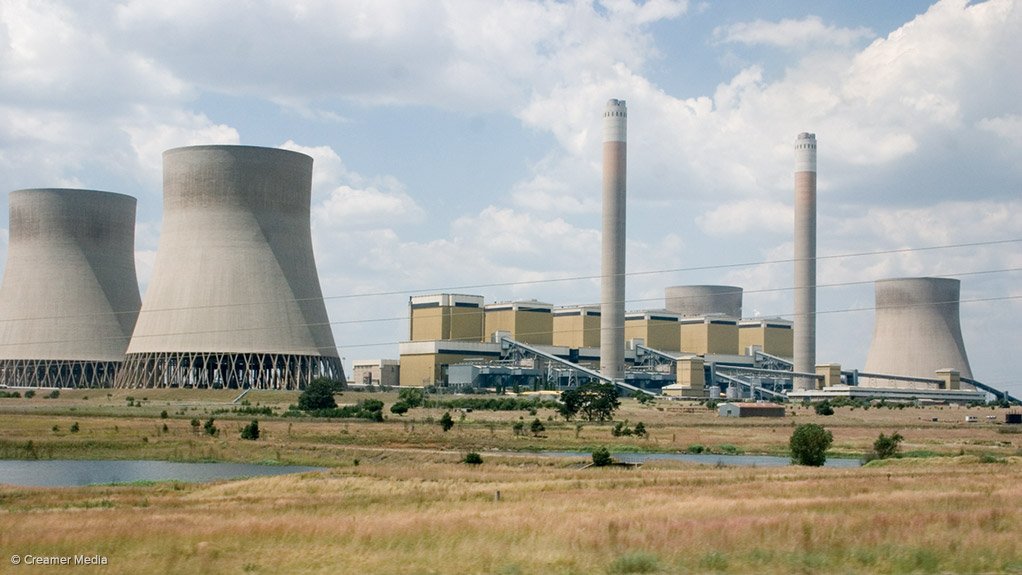After updating some key cost assumptions, Eskom has confirmed that it will be applying for a 32% tariff hike for implementation on April 1, 2023. The State-owned utility is also applying for a 9.74% increase for its subsequent financial year.
The increases are outlined in an addendum to Eskom’s fifth multiyear price determination (MYPD5) application, which contains changes to various key assumptions, including those relating to the cost and use of diesel for its open-cycle gas turbines (OCGTs), as well as independent power producer (IPP) costs.
The addendum also outlines a large increase in the depreciation allowance, which accounts for 10.67% of the 32.02% being sought.
Eskom argues that the depreciation adjustment arises from an “incorrect” regulatory asset base (RAB) valuation by the National Energy Regulator of South Africa (Nersa) in a 2021 tariff decision, whereby the regulator reduced Eskom’s RAB from over R1.2-trillion to about R550-billion.
Eskom subsequently took the RAB aspect of the decision on legal review and a ruling could be made prior to the next Nersa tariff determination.
The 2024 financial year hike outlined in the addendum is slightly below the 38.1% increase contained in a Nersa consultation paper released in July.
That paper was published following a court order stipulating that Nersa adjudicate at least Eskom’s 2024 financial year application under the existing MYPD methodology and make a final determination by December 24.
Written comments had to be submitted by September 8 and public hearings will be held from September 19 to 23, with Nersa indicating that it plans to make a decision on November 7.
Following a court order in 2021, the Energy Regulator adjudicated only the first year of the three-year MYPD5 application, which was submitted in June 2021 and covered the three financial years of 2023, 2024 and 2025.
A 9.61% hike was approved for the 2023 financial year and was implemented on April 1, 2022, raising Eskom’s allowable revenue to R264-billion for the year. Eskom had applied for a 20.5% increase.
The increase outlined by Eskom in its updated MYPD5 submission is still based on the allowable revenue figure of R335-billion included in the original 2021 application. After RCA and court-ordered revenue allowances, however, the figure rises to R351-billion.
That larger revenue figure includes R15-billion arising from a settlement reached after the Supreme Court of Appeal ordered that the remaining portion of a R69-billion government equity injection, which was found to have been deducted incorrectly from Eskom’s MYPD4 revenue, be recouped.
In terms of the settlement, the outstanding R59-billion would be recovered during the financial years from 2024 to 2027.
The R351-billion revenue figure also includes an amount of R1.7-billion arising from a R3.4-billion RCA amount awarded to Eskom, which has not yet been liquidated.
Despite a slight upward adjustment to assumed sales for the year, the standard tariff would need to rise by 32% next year for Eskom to secure the full allowable revenue being sought.
As has become the norm, the request will be strongly resisted by stakeholders during public hearings.
Besides the large depreciation amount outlined, the other two major contributors to the 32% requests relate to primary-energy costs, which make up 7.85% of the increase being sought and IPP costs, which comprise 9.05%.
BIG RISE IN DIESEL COSTS OUTLINED
The main driver behind the primary energy cost rise is a revision to Eskom’s assumption regarding diesel, the price of which has increased materially since Russian’s invasion of Ukraine.
The utility is also expecting to rely more heavily on its OCGTs over the coming two years, to cater for supply gaps that have arisen as a result of a falling energy availability factor (EAF) across its coal fleet and from the Koeberg nuclear power station.
While Eskom’s original application assumed an EAF of 72%, the figure has been revised down to only 59% in the addendum.
As a consequence of the rise in fuel prices and the higher volumes, diesel and fuel oil alone make up 6.09% of the 32% hike being sought.
In rand terms, Eskom is requesting R16.8-billion to cover its diesel cost during the 2024 financial year and a further R6.8-billion for start-up fuel oil. It is requesting R69.9-billion for coal, which represents a slight decrease from the R70-billion assumed previously.
Th IPP cost increase, meanwhile, is attributed to “further energy being sourced from IPPs including emergency procurement”.
Eskom did not immediately indicate whether these higher costs assumed that it would be buying electricity from projects arising from the Risk Mitigation Independent Power Producer Procurement Programme, which includes power ships.
These increases have been partly offset by the removal of arrear debt-related costs, in line with a Nersa decision that paying customers should not contribute to gaps created by non-paying customers.
It is also reduced by the removal of carbon tax-related costs, following Finance Minister Enoch Godongwana’s announcement that the first phase of the tax had been extended to beyond the period under review in the applicaiton.
Eskom says the assumptions relating to operating costs and capital expenditure have not changed from the original application.
The utility is also proposing that the regulator ring-fence all proceeds arising from the Supreme Court of Appeal settlement and RCA award for allocation to the transmission and distribution businesses, which are being unbundled.
Such a move, Eskom claims, would facilitate an accelerated transition for those businesses towards greater cost reflectivity, leaving only the generation business lagging.
EMAIL THIS ARTICLE SAVE THIS ARTICLE ARTICLE ENQUIRY
To subscribe email subscriptions@creamermedia.co.za or click here
To advertise email advertising@creamermedia.co.za or click here











